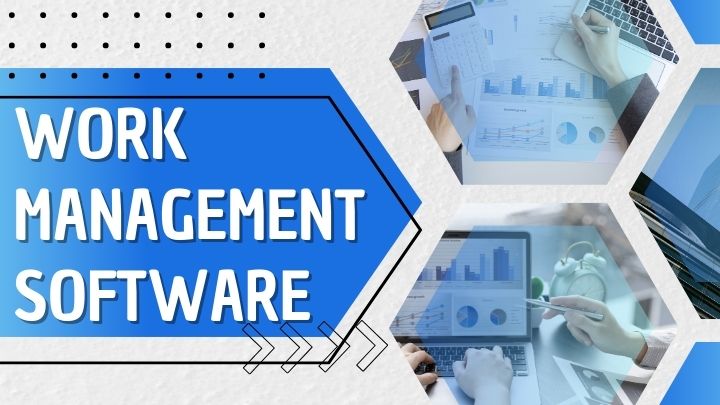Let’s face it—work isn’t getting any easier. Between managing tasks, juggling deadlines, and keeping everyone on the same page, it’s easy to feel like you’re spinning a dozen plates at once. Luckily, work management software is here to save the day! These nifty tools help keep things organized, boost team collaboration, and ensure no detail slips through the cracks.
In today’s fast-paced work environment, businesses, both small and large, rely on work management software to simplify complex processes. But what exactly is it? How does it work, and why is everyone talking about it? In this article, we’ll dive deep into the nitty-gritty of work management software, why you need it, how to choose the right one, and everything in between. Let’s jump right in!
What Is Work Management Software?
First off, let’s clear up the confusion: work management software is not just fancy task management. While it certainly helps you organize to-do lists, it goes much further. It’s a comprehensive system that allows teams to track, collaborate, and manage various aspects of work—think tasks, projects, communications, timelines, and even resources. It’s designed to streamline operations so your team can focus on what they do best.
Key Features of Work Management Software
You might be wondering, “What makes this software so special?” Well, here’s what a solid work management software usually brings to the table:
- Task Assignment and Tracking: Easily delegate tasks, set deadlines, and keep tabs on progress.
- Collaboration Tools: Real-time messaging, document sharing, and team updates all in one place.
- Project Timelines: Visualize your projects through Gantt charts, kanban boards, or calendar views.
- Resource Management: Track how your team’s time, budget, and assets are being used.
- Reporting and Analytics: Generate reports to analyze performance, productivity, and progress.
- Integrations: Seamlessly connect with tools like Slack, Google Drive, and more.
With these features, you can get a bird’s-eye view of your workday and make sure everything runs like clockwork.
Why Do You Need Work Management Software?
If you’ve ever tried to keep track of a dozen email threads, a stack of post-it notes, and last-minute Slack messages, you know the chaos. Work management software eliminates that disarray by creating a centralized hub for everything. Here’s why you should give it a serious thought:
1. Enhanced Productivity
When all your tasks, projects, and deadlines are laid out clearly, there’s no more guessing who’s doing what or when it’s due. Your team can focus on getting things done, not figuring out where things are!
2. Better Collaboration
Say goodbye to the never-ending email chains. Work management tools foster easy communication among team members, regardless of whether they’re across the office or halfway around the globe. Instant updates, file sharing, and real-time discussions ensure that everyone stays in the loop.
3. Increased Accountability
No more passing the buck! With work management software, everyone knows what’s expected of them and when it’s due. The accountability factor naturally increases, and with that, the quality of work tends to rise.
4. Improved Project Visibility
Whether you’re a team leader or a project manager, you’ll get a clear view of project timelines and milestones. Spot potential bottlenecks before they snowball into bigger problems. In fact, many of these tools allow you to zoom out to see the whole project or zoom in on individual tasks, keeping everything under control.
5. Scalability
One of the best things about work management software is how it grows with you. Whether you’re managing a small project or an enterprise-level operation, these tools are designed to handle it all. You can start with a small team and slowly scale up as your needs evolve.
How to Choose the Right Work Management Software
Now, with so many options out there, how do you choose the perfect fit? It’s like standing in the cereal aisle—so many choices, but you need the right one for your team’s appetite. Let’s break it down.
1. Identify Your Needs
First, sit down with your team and figure out what features are absolute must-haves. Are you a small team looking for simple task management, or do you need advanced reporting and resource management? Narrow down your requirements, and you’re halfway there.
2. Ease of Use
You don’t want to spend half your time figuring out how to use the software itself! Look for an intuitive, user-friendly interface that everyone can pick up quickly. The faster your team gets up to speed, the faster you’ll start reaping the benefits.
3. Integrations
Already using Slack or Google Workspace? It’s important to find work management software that integrates seamlessly with the tools your team already loves. This will make onboarding much smoother and prevent any hiccups along the way.
4. Scalability and Flexibility
Make sure the software can grow with you. It should handle both small and large projects with ease and allow for flexibility when your team expands or changes.
5. Cost vs. Value
Work management software comes with a range of pricing options, from free versions to enterprise-level solutions. Make sure you’re getting the features you need for the price you’re paying. A higher price tag doesn’t always mean better!
6. Customer Support
When things go south—and they will—reliable customer support can be a game changer. Whether through live chat, email, or phone, make sure you can easily access help when you need it.
Common Challenges and How Work Management Software Solves Them
Every business runs into its fair share of challenges when managing workflows. Below are a few common pain points that work management software can alleviate:
1. Disorganized Communication
Instead of conversations scattered across various channels, work management software consolidates everything in one place. Team discussions, file sharing, and updates happen in real time, so you don’t have to sift through an inbox full of “Reply All” messages.
2. Missed Deadlines
By setting automated reminders, notifications, and clear due dates, these tools keep everyone accountable. You’ll be able to see if someone is falling behind long before it becomes an issue.
3. Resource Overload
Managing your team’s bandwidth can be tricky, but most work management platforms let you allocate resources wisely. Track time spent on tasks, assign workload appropriately, and ensure no one is burning out while others are underutilized.
4. Lack of Project Visibility
With everything in one dashboard, work management software offers a high-level view of where each project stands. No more scrambling to figure out who’s doing what or wondering how much progress has been made.
FAQs About Work Management Software
1. What’s the difference between work management and project management software?
While the two terms are often used interchangeably, work management software generally encompasses broader business activities, whereas project management software focuses primarily on specific project timelines, deliverables, and tasks. Work management tools also cover day-to-day operations, resource allocation, and overall workflow optimization.
2. Can small businesses benefit from work management software?
Absolutely! Small businesses often face unique challenges in managing limited resources. Work management software helps streamline processes, improve collaboration, and boost productivity—benefits that are critical for small teams looking to grow.
3. Is work management software secure?
Yes, most reputable work management platforms come with security measures like data encryption, two-factor authentication, and regular backups. Always review a software’s security protocols to ensure it meets your business’s standards.
4. Do these tools replace emails?
Not entirely. While work management software minimizes the need for excessive back-and-forth emailing, it doesn’t eliminate email altogether. Instead, it centralizes communication, making emails less frequent but more focused when they’re necessary.
5. Can work management software help with remote teams?
Definitely! Remote teams thrive on collaboration tools. Work management software ensures that everyone—no matter where they are—can stay connected, access project updates, and collaborate in real time.
Conclusion
There’s no denying it: work management software is a game-changer. Whether you’re a startup looking to keep your head above water or an enterprise managing multiple projects at once, these tools help streamline operations, improve collaboration, and boost productivity. It’s all about finding the right solution that meets your team’s needs and watching the magic unfold.
In an age where work is constantly evolving, why wouldn’t you arm yourself with the best tools out there? Work smarter, not harder!



Leave A Comment